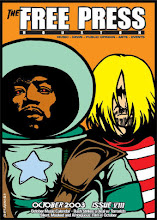Rachel Getting Married

A recent article in the trades lamented the number of once popular directors from the 70s and 80s who are no longer a force in feature films. Names like John Landis, Paul Brickman, John Carpenter, and Lawrence Kasdan no longer get the respect they once had. The obvious choice is to reinvent oneself. That’s how everyone described Sidney Lumet after he directed the hyperactive crime drama Before the Devil Knows You’re Dead. Lumet’s daughter Jenny wrote a script with an acerbic edge called Rachel Getting Married and Jonathan Demme thought it would be the perfect vehicle to return to form.
Demme has never been one to shy away from self-expression and indeed his passion for cinema finds him galloping from the documentary format (The Agronomist, recent films on Neil Young and Jimmy Carter), to studio remakes (The Truth About Charlie, The Manchurian Candidate. Rachel Getting Married shows Demme traveling the art house circuit. Make no mistake, despite a wacky trailer Rachel is not a comedy. Rachel’s not so much a return to form as its Demme playing with the spine of indie filmmaking.
Rachel is a serious film with stunning performances and proof that Demme’s a filmmaker that refuses, like so many of his contemporaries, to go silently into the night. While Rachel uses the structure of a wedding and an ensemble cast to tell its tale, Anne Hathaway has the biggest role as Kym, fresh out of rehab if only for the duration of the ceremony. Family relations, equally portrayed by Rosemarie Dewitt as Rachel, Bill Irwin (the Dad although divorced) and Debra Winger, feel properly lived through. If you look closely you’ll see brief appearance by the likes of Roger Corman (in the movie about as long as he was in Silence of the Lambs) and Robert Castle as the Judge who performs the wedding. Castle is Demme’s cousin, a priest in real life who was the subject of Cousin Bobby, Demme’s 1992 film between Lambs and Philadelphia.
Rachel feels indie not because it confounds our expectations but due to the way Demme goes off on tangents. He’s subtle when leaving clues as to the basis of the family dysfunction yet after the vows are exchanged concentrates on different people we haven’t met yet as they dance in a sequence that goes on for nearly ten minutes. The film celebrates its diverse racial mix with its mixed wedding and even Irwin has hooked up with Anna Deavere Smith. The docudrama style works a kind of magic weaving music throughout by a couple of bands providing the wedding’s theme but who also appear to be staying in the same house. Rachel presents unsympathetic characters we’re not supposed to like but just identify with.
Kym carries a lot of personal baggage while Rachel, just short of her doctorates in psychology, can’t help deigning to those around her. Dad seems resigned to indecisiveness while Mom (Winger) takes a swing at one of her daughters. The resentment isn't bubbling under so much as dripping off the walls.
That doesn’t mean people aren’t glad to be there. They are and everyone adjusts around any lasting tragedy. Rachel Getting Married has the sense to make it real enough to turn some people off with its abrasive reunion.









0 Comments:
Post a Comment
<< Home